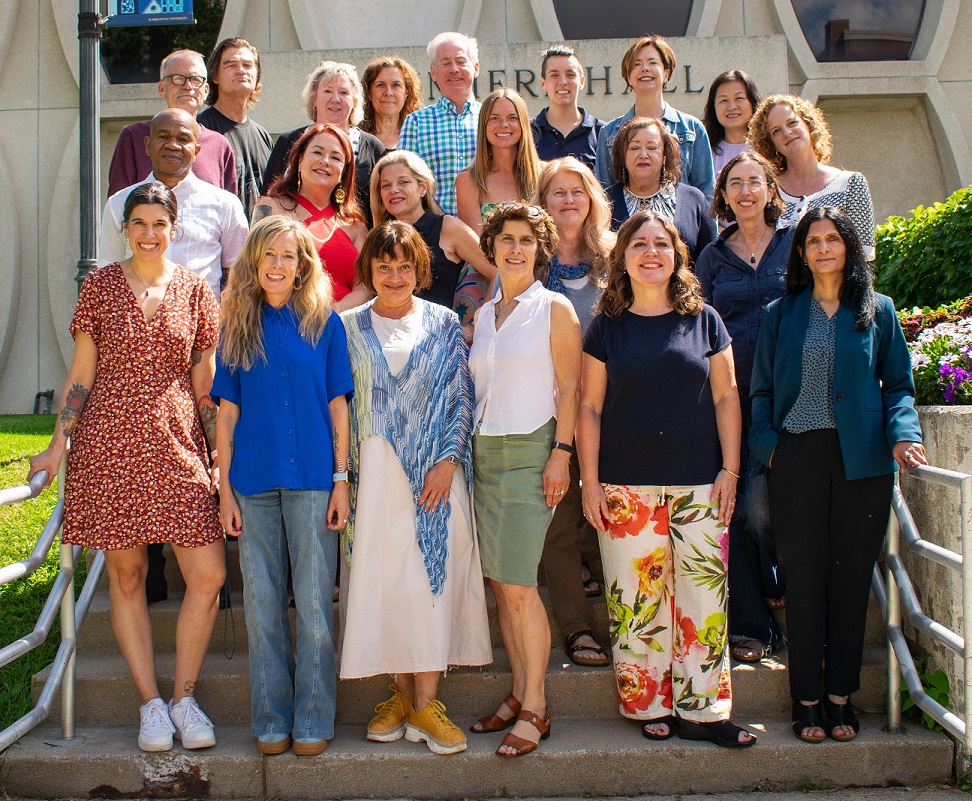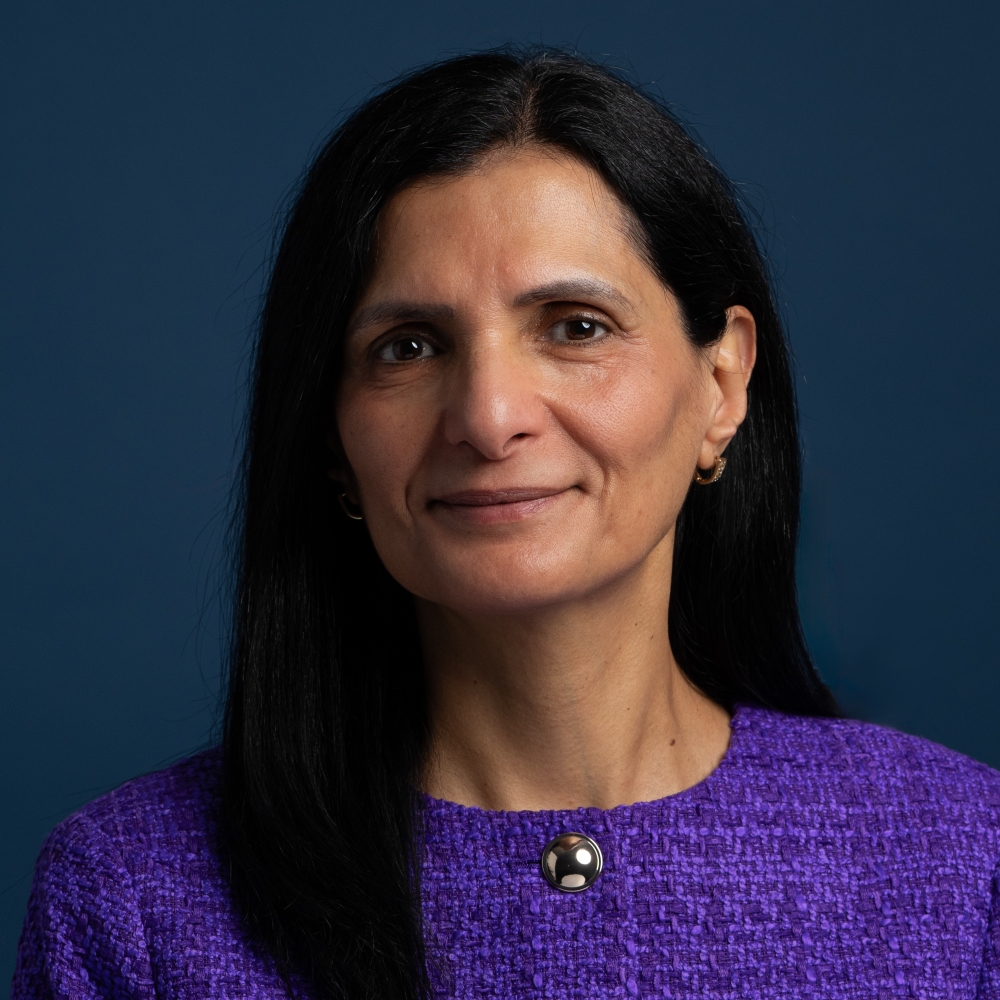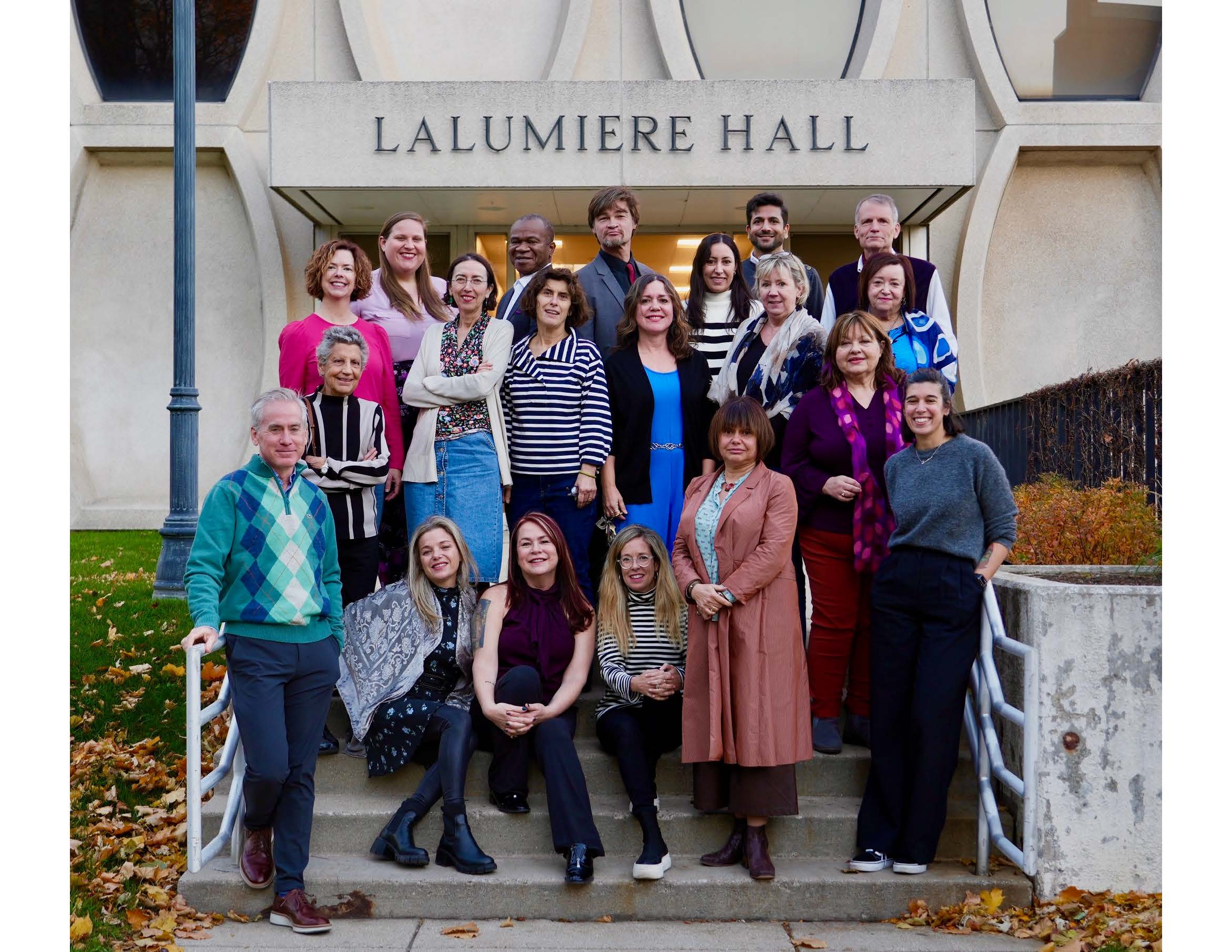Professor of Arabic, Middle Eastern, and Cultural Studies
Languages, Literatures and Cultures
Founder & Executive Director, Arab and Muslim Women’s Research and Resource Institute (AMWRRI)
Director of Arabic and Culture Studies and Middle East North Africa Studies
Recipient of Fulbright Scholars Research Fellowship 2023–2024
Editor-in-Chief of Journal of Gender, Ethnic, and Cross-Cultural Studies
Education
- B.A., Birzeit University, Palestine – focus on Islamic and Arab History
- M.A., University of Wisconsin–Milwaukee – American Ethnic History with a focus on Arab American Studies
- Ph.D., Marquette University – American and Middle Eastern History with a focus on women activism and cultural encounters
Courses Taught
-
Arabic language and culture (all levels)
Arab and Muslim women in transnational perspective; immigration and diaspora studies
Feminist, postcolonial, and decolonial theory in Middle Eastern contexts
Oral history, ethnography, and intercultural dialogue
Religion, identity, material culture, and disability in faith-based and cultural contexts
- ARBC 3800 – Re-envisioning Disability among Arab and Muslim Populations
- CORE 1929 – Constructing Disability (Foundations Methods of Inquiry, MOI)
- ARBC 3220 – Arab and Muslim Women in America
- ARBC 3200 – Culture and Civilization of the Middle East
- ARBC 3705 – Arabic for Media
- ARBC 1001 – Elementary Arabic 1001
- ARBC 1002 – Elementary Arabic 1002
- ARBC 2001 – Intermediate Arabic 2001
- ARBC 2002 – Intermediate Arabic 2002
- ARBC 2930 – Formal Spoken Arabic
- ARBC 3001 – Arabic Composition and Grammar
- ARBC 3210 – Arabic Literature in English Translation
- HIST 006 – Introduction to American History
Research Interests
Dr. Enaya Othman is a Professor of Arabic, Middle Eastern, and Cultural Studies at Marquette University. Her research and teaching span transnational feminism, migration studies, oral history, and Arab and Muslim diasporic experiences. She has conducted extensive fieldwork in Palestine, Jordan, and the United States, examining how Arab and Muslim women negotiate gender roles, religious identities, and cultural practices. Her work pays particular attention to cultural dress and heritage in relation to identity, feminism, women’s activism, and cultural preservation, as well as marriage practices across borders and generations.
Dr. Othman is the founder and executive director of the Arab and Muslim Women’s Research and Resource Institute (AMWRRI), a nonprofit organization that uses oral history, digital storytelling, and public scholarship to document and amplify Arab and Muslim communities in the diaspora. AMWRRI serves as a platform for cross-cultural collaboration across regions, integrating community voices into scholarly and policy conversations and advancing inclusive knowledge production.
Her scholarship is deeply interdisciplinary and global in scope. She is the author of Negotiating Palestinian Womanhood: Encounters between Palestinian Women and American Missionaries, 1880s–1940s (Lexington Books, 2016) and Crafting Marriages: Palestinian Women Transforming Gender Boundaries (Syracuse University Press, 2025). Her current book project, prepared at the invitation of Cambridge University Press, investigates cultural dress and heritage as forms of feminist resistance and as central to processes of identity-making, memory, and women’s activism in both homeland and diaspora contexts.
Dr. Othman has extensive academic and community-based research experience in Jordan and Palestine, where she has collaborated with Palestinian refugee communities, NGOs, and women-led enterprises. She also spent time in Jordan as a Fulbright Scholar, conducting fieldwork on gender, migration, and transnational identity. In addition, she has directed study abroad immersion programs in Jordan and Oman, focusing on Arabic language learning and cultural engagement. Through these initiatives, she has advanced intercultural competence, student development, and international academic partnerships. At Marquette, her teaching reflects a commitment to inclusive, globally engaged education that bridges theory with lived experience.
Professional Affiliations
- Developed and acted as the principal organizer of the Milwaukee Public Museum exhibit: “Beyond the Veil: Dress, Identity and Tradition Through the Eyes of the Muslim and Arab Women of Greater Milwaukee.”
- Founder and Director, Arab and Muslim Women’s Research and Resource Institute (AMWRRI) — leads interdisciplinary, community-based research and student training in oral history, cultural heritage, and gender studies.
- Advisory Board Member, Milwaukee County Historical Society Oral History Project: “Immigrant Experience in Milwaukee County” (2025).
- Orgonizing Committee , Marcus Center “Celebrating Palestine, developed event narrative, contributed to grant writing, and coordinated community collaboration.
- Fulbright Program National Screening Committee, Near East/North Africa Region, Institute of International Education (2025–2026).
- Editor-in-Chief, Journal of Gender, Ethnic, and Cross-Cultural Studies (2019–present).
- Editorial Board Member, Journal of Arabic Language and Literature, Ferdowsi University of Mashhad (2022–present).
- Faculty Peacemaker in Residence, Center for Peacemaking, Marquette University (2024–2025).
- Principal Organizer and Curator, “Beyond the Veil: Dress, Identity, and Tradition Through the Eyes of Muslim and Arab Women of Greater Milwaukee”, Milwaukee Public Museum.
Specialization
Research
- Transnational feminism, gender, and Arab and Muslim diaspora studies
- Migration, refugees, and displacement with a focus on Palestinian studies
- Religion, identity, belonging, and disability in Muslim communities
- Material and visual culture, including cultural dress, activism, and art
- Modern Middle Eastern history and colonial encounters
Selected Publications
Books
- Crafting Marriages: Palestinian Women Transforming Gender Boundaries. Syracuse University Press, 2025.
- Negotiating Palestinian Womanhood: Encounters between Palestinian Women and American Missionaries, 1880s–1940s. Lexington Books, 2016.
- Resistance through Threading Fashion: Transnational Reproduction of Palestinian Cultural Clothing (in preparation; invited by Cambridge University Press).
Peer-Reviewed Articles
- “Reflections of American Muslim Women with Disability and as Caretakers.” Journal of Middle East Women’s Studies, in press, 2024.
- “Refashioning the Meanings of Dress in Palestinian Transnational Communities.” Journal of Gender, Ethnic, and Cross-Cultural Studies 3, no. 1 (August 2025): 1–14.
- "Ignatian Values and International Conference on Disability." Jesuit Higher Education: A Journal 13, no. 1 (June 2024): 104–108.
- Othman, H.E., & Ong, L.Z. “Muslim Americans’ Experience of the Pandemic at the Intersection of History, Culture, and Gender.” Journal of Ethnic and Cultural Studies 10, no. 3 (June 2023): 35–54.
- “American Palestinian Women’s Marriages within and Beyond Borders.” Journal of Middle East Women’s Studies 18, no. 2 (July 2022): 35–54.
- Callender, K.A., Ong, L.Z., & Othman, E.H. “First-Generation Immigrant/Refugee Muslim Women’s Prayer and Mindfulness in Relation to Mental Health.” Journal of Religion and Health (2022): 3637–3654.
- Othman, E., Ong, L.Z., Omar, I.A., Bekhet, A., & Najeeb, J. “Experiences of Muslim Mothers of Children with Disabilities: A Qualitative Study.” Journal of Disability and Religion (March 2021): 1–25.
- “Crossroad Imagination: The Thob Mediating Between Palestinian Material Culture and Gendered Activism.” Journal of Textile Science & Fashion Technology 5, no. 1 (March 2020): 1–6.
- “Palestinian American Women and Marital Choices across Generations.” Journal of American Ethnic History 40, no. 1 (Fall 2020): 70–91.
- “Deconstructing the Dogma of Domesticity: Quaker Education and Nationalism in British Mandate Palestine.” Journal of Colonialism and Colonial History 19 (Spring 2018): 1–23.
- “Strategies of Recognition and Palestinian Immigrant Women’s Cultural Dress: Forging Communities and Negotiating Power Relations.” Journal of New Middle East Studies 5 (2015): 1–15.
- “Building a Community among Early Arab Immigrants in Milwaukee, 1890s–1960s.” Wisconsin Magazine of History 96 (Summer 2013): 38–49.
- “Meeting at Middle Ground: American Quaker Women’s Two Palestinian Encounters.” Jerusalem Quarterly 50 (Summer 2012): 47–65.
- “The History of Arabs in Milwaukee.” Wisconsin Historical Society (2012).
Book Chapters
- “Fatima Aliye’s Invisible Authorship: Challenging Orientalism and Patriarchy.” In Feminisms, Transnationalism, and the Archive: The Women’s Library at the Columbian Exposition, edited by Marija Dalbello and Sarah Wadsworth. Palgrave Macmillan, 2024.
- “Diasporic Fashion: The Palestinian Dress as a Form of Gendered Activism.” In Forms of Migration: Global Perspectives on Im/migrant Art and Literature, edited by Stefan Maneval and Jennifer Reimer, 44–53. Berlin: Falschrum Books, 2022.
- “Palestinian Women in Orientalist and Nationalist Images.” In Making the Postcard Women’s Imaginarium: Dreaming Our Future out of the Past, edited by Salma Ahmad Caller, 94–101. Peculiarity Press, 2022.
- “Muslim Women in the Diaspora: Shaping Lives and Negotiating Their Marriages.” In World of Diasporas: Different Perceptions on the Concept of Diaspora, edited by Harjinder Singh Majhail and Sinan Dogan, 111–123. Leiden: Brill, 2018.
(For a complete list of publications, see CV.)
Additional Information
Links to works and publications:






